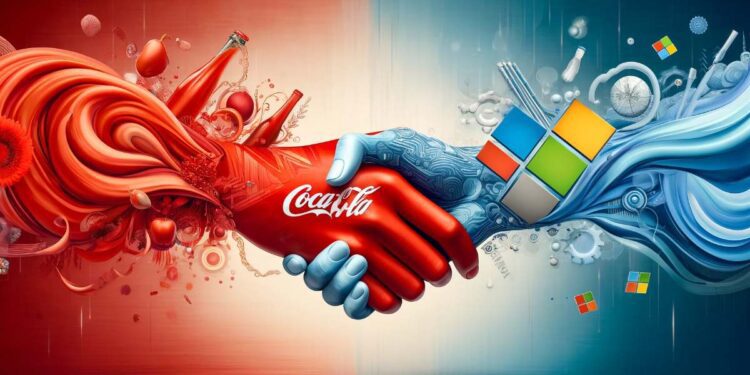The history of business has left us with unexpected partners many times, but perhaps thinking of the collaboration between the world’s most well-known soft drink company and one of the leaders in computer technology and now artificial intelligence, surpasses everything that came before.
Coca-Cola has just invested $1.1 billion in Microsoft. The reason? A five-year agreement to promote innovation and productivity worldwide through AI. The investment aims to leverage Microsoft Azure’s OpenAI Service technology to integrate AI solutions into various business functions.
The use of tools like Copilot could help employees improve customer experience and foster innovation and growth.
Get me that soft drink with artificial intelligence
Microsoft is one of the leading players in the AI race. The alliance with OpenAI has been key to the expansion of its technology, and products like Copilot demonstrate the potential of AI in improving customer experience and work optimization. Coca-Cola, on the other hand, aims to leverage these tools to become more competitive and efficient.
Coca-Cola has already migrated all its applications to the Microsoft Azure cloud computing platform, encouraging its independent partners to follow suit. This million-dollar investment will take the relationship between the two companies to a new level, with artificial intelligence as one of the main pillars.
The alliance between Coca-Cola and Microsoft not only reflects the importance of AI in the tech industry, but also its potential to transform other sectors. Coca-Cola plans to utilize AI to enhance customer experience, optimize internal processes, and foster innovation.
Additionally, Microsoft states that joint experiments with Microsoft’s technology could open up new opportunities and set a standard for other companies looking to implement AI in their operations.
It is not a doubt-free agreement: the current state of AI still has room for improvement, especially in terms of accuracy and security. If this AI is integrated, for example, with customer service, as it seems will be the case, we may soon see curious news. However, the union of both companies seems to be a boost for the application of this technology on a multinational scale.


